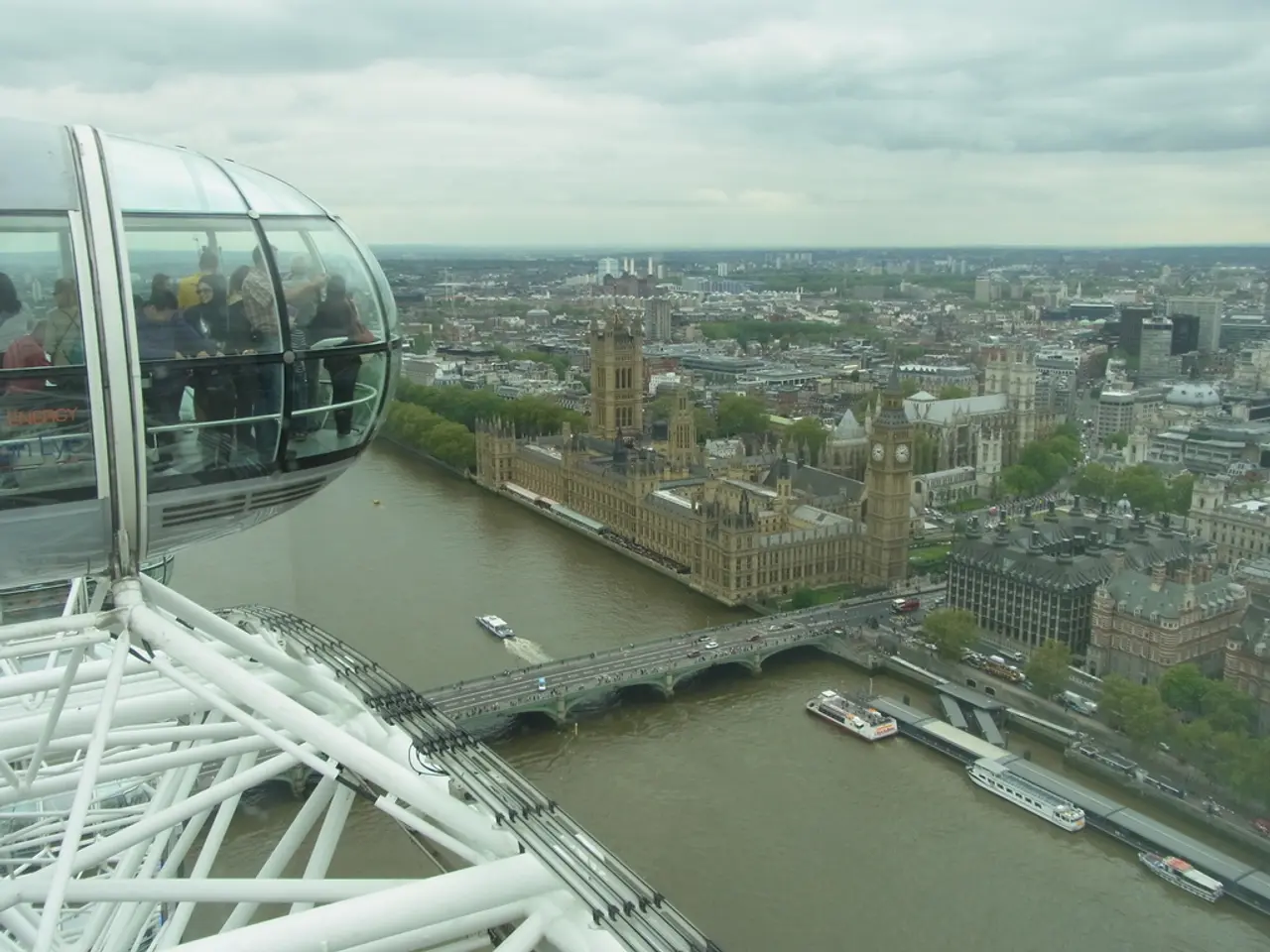Business Update: Contemplating Emigration: Is Now the Moment?
In recent conversations, many middle-aged, professional, middle-class individuals in the UK have expressed a feeling of decline in the country, largely due to ongoing public dissatisfaction with crumbling public services, persistent economic pressures, and a sense of governmental disconnect.
These concerns are not solely focused on the current government, but rather on bigger factors that have been shaping the nation's future. The group expresses exhaustion with continuous crises, perceived systemic failures in key institutions like the NHS, and widespread concerns about personal and national economic stability.
Despite some moderate personal financial resilience, the increasing cost of essentials such as energy and housing remains a significant strain, indicating a polarized financial landscape. Strikes by professionals, such as doctors, further indicate deeper systemic dissatisfaction and anxiety about the sustainability of public services and economic structures that underpin professional middle-class life.
The UK's economy is currently experiencing a slow growth, with no significant progress registered since 2014. Consumer confidence in the UK remains below pre-pandemic levels, reflecting subdued economic momentum domestically. This uncertainty contrasts with more stable or robust economic conditions in other parts of Europe and the US.
The per-head figure in the UK is around £37,000, significantly lower than the £60,000 in the US. Typical real income is set to grow by only 1% over the next five years, according to some estimates. This slow growth has led some to fear that the lost decade since 2008 could turn into a lost 20 years, a generational disaster for many.
However, there is no indication from recent reports of a mass exodus of the wealthy from the UK, contrary to some media claims. While luxury real estate in London saw a slight price decline in early 2025, this occurred without an increase in housing supply, suggesting localized softness rather than systemic collapse.
The Editor of City AM, who has been in the position since 2015, recently wrote a column suggesting that Britain is a poor country that acts like a rich one. For now, the general sentiment among the middle class is one of "keeping calm and carrying on."
A poll this week showed that nearly 30% of the under 30s are either seriously considering leaving or are actively planning to leave the UK. The main topic of conversation among the speaker's friends is the state of the country and whether to leave it or not.
Despite these challenges, there is a hope among many that either Labour or the Tories will engineer needed growth or that another party will do so. The speaker believes that successes, progress, innovation, or dynamism in the country are achieved despite the conditions, not because of them.
As the UK continues to grapple with these issues, the nation's future remains uncertain, and the conversations around the dinner table are likely to continue centring around the state of the country and its prospects for the future.
- The increasingly complex state of politics, economics, and taxes in the UK has led to heated discussions about the country's future, particularly among middle-aged, professional, middle-class individuals.
- The growing concerns about the UK's economy, public services, and generally declining wealth-management are not originating solely from discontent with the government but due to broader systemic factors.
- Amidst continuous crises, systemic failures in key institutions, and escalating costs of essentials like energy and housing, many are searching for viable investment opportunities in personal-finance and business to secure their future financial stability.
- The current softness in the UK's economy, with slow growth and low consumer confidence, has been contrasted with more robust economic conditions in other parts of Europe and the US.
- As the UK experiences a potentially prolonged period of economic instability, there is a growing sense of angst and anticipation among the younger population, with nearly 30% of under-30s expressing the want or intention to leave the country in search of better opportunities elsewhere.




